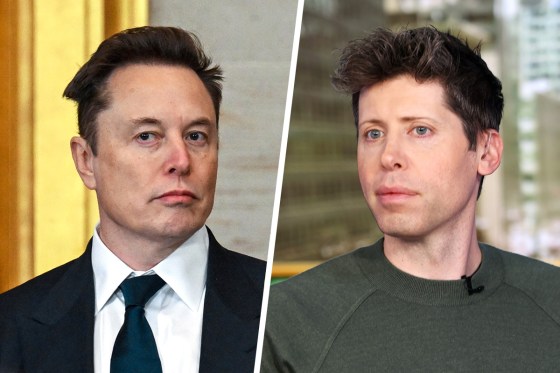
Regarding the long-running legal dispute between billionaires Elon Musk and Sam Altman over OpenAI, the firm they co-founded, a federal judge said Tuesday that she is unlikely to stop the business’s current restructuring plan.
Musk, the CEO of SpaceX and Tesla and a close ally of President Donald Trump, wants to prevent the Microsoft-backed AI developer from turning into a for-profit business. He filed a lawsuit against OpenAI last year, first in California and then in federal court, alleging that the firm was turning into a closed source and profit-maximizer.
U.S. District Judge Yvonne Gonzalez Rogers stated in a courtroom in Oakland, California, on Tuesday that Musk’s allegation of irreparable injury is a stretch, adding that the lawsuit is a contest between billionaires.
Musk is asking for a preliminary injunction to prevent OpenAI from converting. Gonzalez Rogers did not make a decision right away.
Musk was one of the few co-founders of OpenAI in 2015 and did not attend the hearing on Tuesday. Between then and 2018, he contributed $45 million to the startup, according to his attorney on Tuesday. However, he and Altman had a falling out, and a lot of their arguments were made public online. Musk further escalated the conflict between OpenAI and xAI in 2023 by launching his own rival. Last year, Musk included xAI as a plaintiff in the dispute.
In addition to recent Chinese inventions that have shocked both AI experts and investors, American businesses are still rushing to invest in AI infrastructure and development. Altman accompanied Trump at the White House last month when he unveiled Stargate, a $500 billion AI infrastructure project.
Musk’s lawyer claimed that Microsoft and OpenAI had wrongfully agreed to restrict competition, so establishing monopoly-like conditions that would be illegal under the Sherman Antitrust Act. The lawyers for OpenAI denied that such an arrangement ever existed.
OpenAI is a charity that receives a very small donation. According to Marc Toberoff, Musk’s lawyer, it all flows to the for-profit company. When you consider that, it’s a compounding effect in a young business where OpenAI, who currently holds 70% of the market, is working with Microsoft to put their rivals in the nursery.
Before switching to a so-called capped profit model in 2019, which allowed it to operate more like a startup with the charity arm managing its for-profit arm, OpenAI started out as a nonprofit research lab.
In order to raise more money to compete with the hundreds of billions of dollars that big businesses are currently investing in AI development, the company announced in December that it would change its structure this year. This change would involve forming a public benefit corporation, a kind of for-profit business that seeks to improve society.
The goal of artificial general intelligence, or the potential to create AI that can essentially think for itself, is OpenAI’s public benefit purpose.
However, other technologists have also voiced their disapproval of OpenAI’s transition to a for-profit company. The Wall Street Journal claims that in December, California Attorney General Rob Bonta received a letter from Meta, the company that owns Facebook and Instagram, requesting that the state prohibit it from doing so. In a statement released in December, the nonprofit AI safety group Encode supported Musk’s complaint.
Even if that were the case, OpenAI lawyer Sarah Eddy defended the company’s choice, telling the judge that it would be economically illogical for investors to put all of their money into OpenAI.
“Investors are choosing one investment vehicle over another for a variety of reasons,” she stated on Tuesday.
Musk had previously backed OpenAI’s transition to a for-profit company, according to the company’s lawyers.
According to allegations made by OpenAI last year, Musk concurred in late 2017 that the mission’s next step was to establish a for-profit company, adding that he desired majority ownership, initial board control, and the position of CEO. Emails allegedly showing Musk telling Altman and a number of other people: Even raising several hundred million won’t be enough were later made public when Musk sued OpenAI. This need billions of dollars annually, or else it will be forgotten.
Musk has not responded to OpenAI’s accusations in public.
When the matter goes to trial, Musk can make his case to a jury, according to Gonzalez Rogers.
I’m not sure what happened, but I’m not going to toss anything out on a request to dismiss when it seems likely that Mr. Musk’s claims are accurate, she added. We’ll find out when he takes the stand and shows it to the jury. Who is correct will be decided by a jury. There will be a trial for something.
